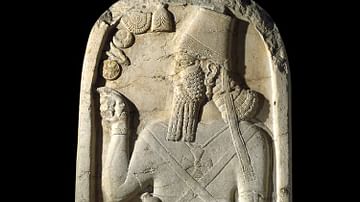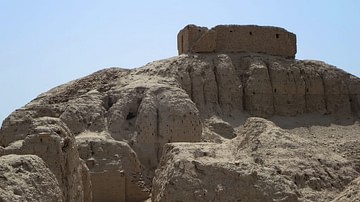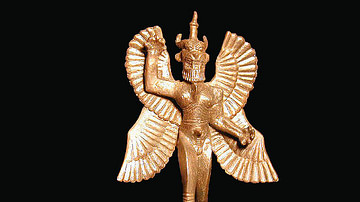The gods of Mesopotamia are first evidenced during the Ubaid Period (c. 5000-4100 BCE) when temples were raised to them, but their worship developed during the Uruk Period (4100-2900 BCE) and their names appear in writing beginning in the Early Dynastic Period (2900-2334 BCE) in Sumer alongside the development of the ziggurat.
The ziggurat first appeared in the Uruk Period and was the center of the temple complex. It was created as an artificial mountain raising the clergy who officiated at rituals and festivals closer to the gods. Male deities replaced many female deities during the reign of Hammurabi of Babylon (1792-1750 BCE) and remained more popular through the fall of the Neo-Assyrian Empire in 612 BCE. The worship of both male and female deities continued, however, into the Persian era beginning c. 550 BCE.
In the following collection, Pazuzu is not, technically, a god but a demon. Demon, however, should not be understood in its modern sense but as a supernatural entity who often served the will of the gods.











